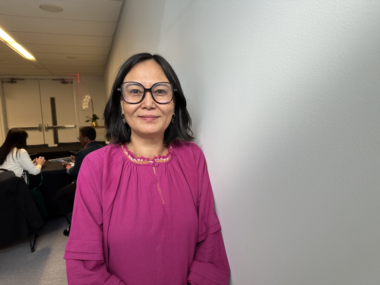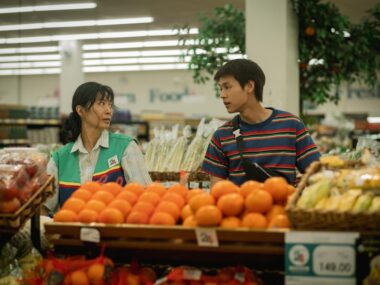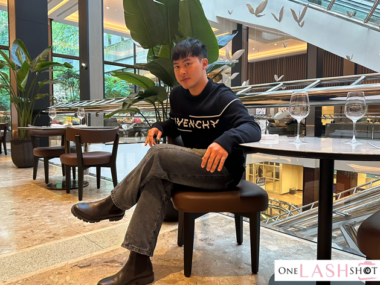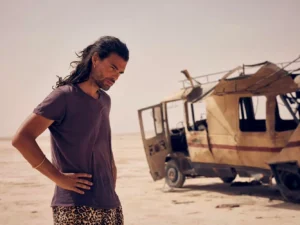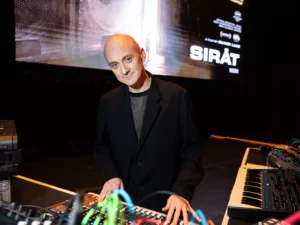Producer Hu Lizhou is no stranger to the Chinese film industry. From cultivating his love for film from an early age to working with the most popular Chinese actors in the current generation, he is one of the most promising producers in the industry.
One Lash Shot had a chance to interview him during the North American premiere of ‘Escape from the 21st Century’ which played at the Toronto International Film Festival as part of the ‘Midnight Madness’ segment on September 10.
Join in on our discussion on the Chinese film world, Director Yang Li, Actors Ruoyan Zhang and Wu Lei!
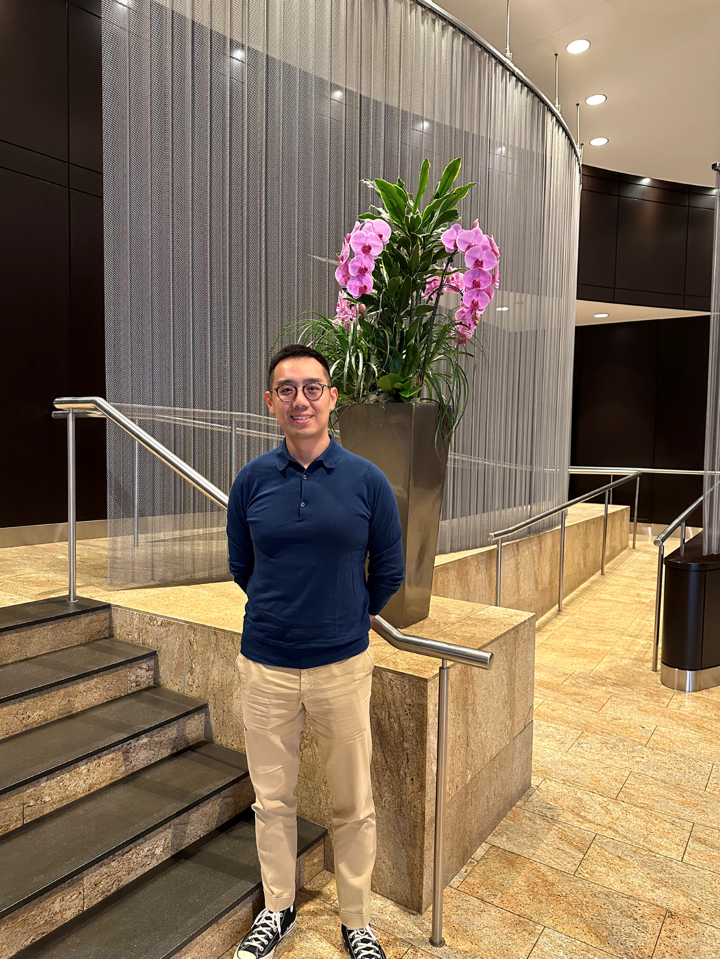
What made you become a producer in the first place? Who would you cite as an inspiration?
I studied film studies in university- then I was interested in production but it was difficult to start in production, so I worked in film festivals. It was a happy time because I could meet financiers and directors and discuss scripts with them, thereby establishing relationships. So, I was looking for a chance to work in production. So, this is my first feature film in the festival as a producer- this is the first long feature I produced and it’s already been distributed in China. The Toronto International Film Festival is my debut platform for a feature film as a producer. I went through the distribution in China and now this festival, but now when I recall, the process of discussing with the director for the script and looking for the talent and discussing with them, I find that phase of the process is happier and more exciting.
Film producers have previously mentioned that producers have to get used to hearing ‘no’ a lot of the time; and that you have to be tireless to get a film made. Is that true?
Yeah, it’s true (laughs). It’s a lot of nos and very difficult to process, especially for this movie because it is not a straightforward, clear genre. So, on many aspects, it was difficult, not only on the money side, but also for example on the casting side because there are many characters in the movies, so it was very challenging to find actors who would help agree on the position of the cast. There is not a very clear leading role so it was challenging for them to agree and work with us. They are very famous actors in China, so it was not easy. And, on the money side, it’s a big investment, it’s a big film, so it was difficult to bring investors because in China it is not a very clear, straightforward genre. It’s also the first film of my company. I manage a film company, so we could not cover all the budgets so we had to work with other financiers and at the end of the day we worked with two other ones- Huanxi Media and Enlight Pictures. So, three companies invested in this movie.
So basically, it was a bit of a hard process to attract investors for this movie and ultimately Beijing Scity Films Co., Huanxi Media and Enlight Pictures were behind the production?
Yes, that’s correct.
What do you usually look for in a script before deciding whether you want to join the project as a producer? What about the script of Escape from the 21st Century caught your eye?
So, I think the Chinese markets are different from American markets. The big titles that hit the markets in China have big slots for their release. For these big slots, the movies that work quite well are the very strong genres and very stylized, strong directing touch- especially in the last year. Recently there have been two big films in the Chinese New Year- YOLO and Pegasus 2.
Well, these have very strong genres with very strong directing so when I started my company, I wanted to look for these kinds of projects- strong genre and strong directing style. When I started the company, in the first six months I had read 300 scripts and I chose this one because this is also a strong genre and had a very strong directing touch. Also, in China, for now, I wouldn’t do a very art-house movie because those don’t work at the box office- you can’t find investors and you can’t find movie stars. So, that’s my direction. Except for the market dimensions of my choosing titles, this one is perceived by the Chinese audience to be very similar to the Japanese manga of the 80s and 90s, and I went through one of the biggest Japanese mangas of the time- Shonen Jump. It was a magazine name that was quite famous in Japan. The founder of this magazine in Japan said that the three main topics of the mangas are- friendship, courage and victory. And I thought that Japanese Mangas had been there for several decades and it seemed very hard. I thought in this project we had this Japanese manga style and that these three topics are very present. So, I thought if it works for mangas, it might work for us too and bring an audience. But after the distribution of the movie, I rethought this fact.
So, the thing is the Chinese film market is evolving very rapidly – like every 6 months it’s another story. I thought Escape from the 21st Century has a very strong Japanese manga that might be very appealing to the new generation, but then I saw that recent feature films that are based on Japanese mangas did not make big revenues at the box office. They made 100 million yuan, the same as our movie- not that high. There’s a roof you can’t break now.
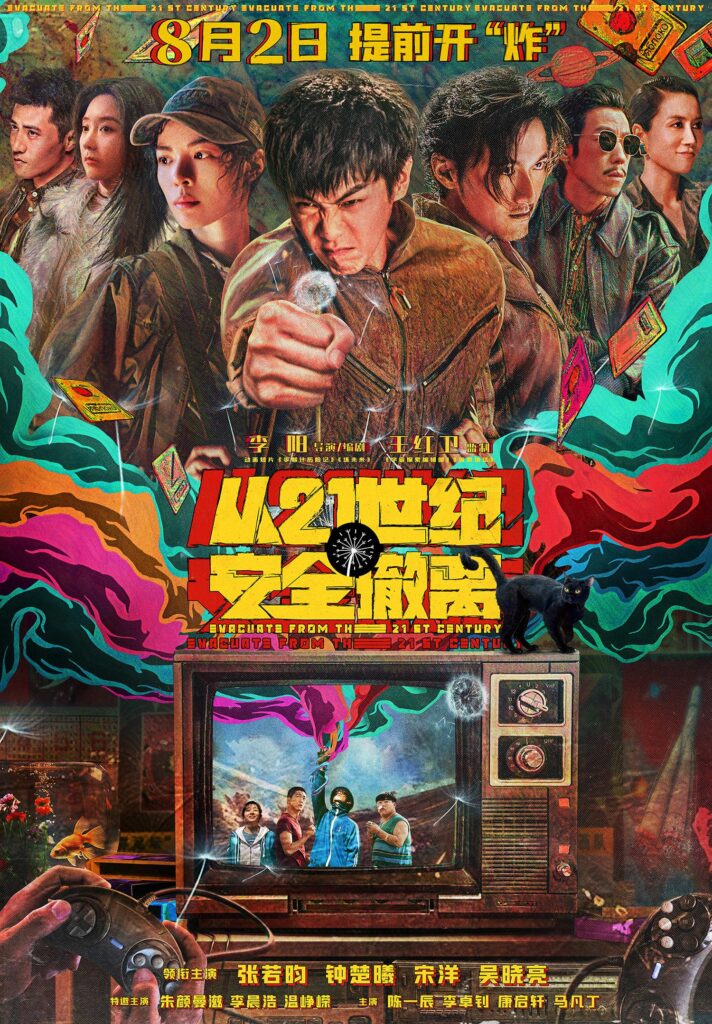
The next movie from my company is very different – it is a martial arts costume film that we are finishing right now called Ru Xing Ru Ge featuring Chen Kun and Wu Lei. Some people asked why would we shoot a movie so different- one is crazy, sci-fi action, and the other is a costume martial arts type. Escape from the 21st Century has 2,200 shots, while Ru Xing Ru Ge has only 1,000 shots. But I think actually both have the same core — two strong genres with two strong directors.
The screenplay and directing was by Yang Li. How did you go about choosing him? How did he meet the qualities you were looking for?
The director started with animation, so he doesn’t have experience with live-action. So, when we started with the script, it was impossible to achieve it with the budget we had. I mentioned 2,200 shots, but from the original script, it would’ve been 3,000 shots.
So, we brought on board a very important executive producer who is very famous in China called Wang Hong-Wei. His main role was to cut the script, so he cut a fifth of the script to make it smaller. Then we went in to cut the script into shots and tried to work on the preview of it, when we realized the difficulty of the production of those shots was much beyond what was expected, so I minimized the difficulty of shooting it. It was very complicated. The director would come up with samples from other movies/TikTok shorts/video games, but those things were not achievable. In the movie, a lot of things were done through animation, because it was not possible to achieve those in live action. So, now, after experiencing live-action, the director thinks that he doesn’t find any freedom in live action as there are too many constraints. So, he thinks animation is more suitable for him. It was a very difficult process.
The whole creative process for Yang Li was a series of letting go of his initial wishes. There was a lot of CGI in the movie, which was done by a team. The team would work step-by-step until the result was produced. However, the director would not be satisfied with the result. But there would not be time or money to redo it from scratch. So, for him, it’s been a very long series of compromising. It was a frustrating process for him— and for me (laughs). We had a lot of conflicts because his goal was to reach a good result, but my goal was to finish the job within the given budget and time. I had to deliver to the audience and give feedback to the investors because by then we had already spent 4 years working on this project. We are still very good friends who often argue (laughs).
Was it a similar process of zeroing down on the cast- what made you choose Ruoyun Zhang, Elaine Zhong, Yang Song, Leon Lee and Xiaoliang Wu to play the main characters?
For Zhang Rouyun, it was a long process.
Director Yang Li had a contract with a company called Desen Media when we started to work on the film. The president of Desen Media sent a script for a TV series to Rouyun initially. But he didn’t like it. So, he sent the script for Escape from the 21st Century. Rouyun was like she was sending me all kinds of different scripts, but not thinking what suited me— it’s all random.
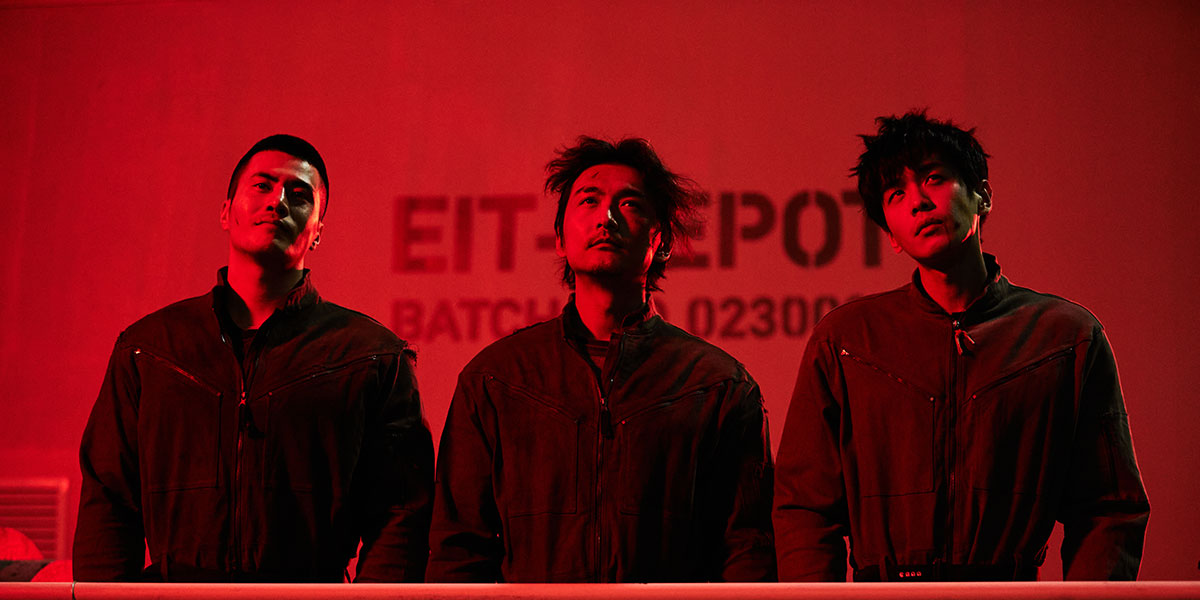
But actually, Rouyun really liked the script. All this happened quite a few years ago, maybe around 2016. So, he was interested in the adventure and when I started my company in 2019, I had already been working with the director on the script, the design and other preparations for this movie. Rouyun heard that the script he had read 3 years ago was actually in development. So, he came and met me, and I felt that he wanted to join the project. But Rouyun didn’t officially sign with me until the very last moment, just before the shooting. He was waiting for other actors to come on board. And, he requested that, even though he was a TV series actor, he wanted the main cast to be chiefly film actors. This was because it was an important move for him, Escape from the 21st Century being his first feature film, post his drama background. So, it was only a month before shooting that he signed and decided to join the project. By then, the rest of the cast was completely decided.
As a producer of the film, how do you measure the success of this movie?
In the short term, we look at the box office revenue and if we can make the money back for our investors. From that angle, I can say it’s not a success. At least, in the short-term perspective. But, on the other hand, this movie has brought a lot of respect and attention from the Chinese industry to the director. It was his first feature film so we were able to bring a strong new director to the Chinese film market. Also, we introduced Zhang Rouyun to the film world and the industry thinks he is a good actor for films now. This movie is now in Toronto and will be going to many film festivals, so I guess, the movie was able to generate attention and has potential for success. So, in the very short run, it’s not a success at the economic level, but I hope that in the long run, we get to make more sci-fi projects as the attention for this one increases.
Both, Escape from the 21st Century and Ru Xing Ru Ge are two very different movies. One needs a lot of preparation to do the VFX and then 2 years to achieve the VFX, so 4 years all in all. It’s kind of very challenging for production. On the other hand, Ru Xing Ru Ge is a martial arts costume drama. It’s another kind of difficulty as it’s an action movie, so you spend less time in pre-production, but you spend more time in the shooting and production stages. Because of this lot of people in the industry think that I can achieve great difficulty in production. For example, the movie that did best during summer in China is called A Place Called Silence. The producer of that movie loved our movie and she wants to work with us now. It’s good for me because that movie made a lot of money. But now I am very confused with my judgements on the box office because I worked for 2 years in a very big distribution company so I would go and check all the movies and I had a very good sense of judgement on box office returns. However, as a producer, I spend a lot of time creating, so it takes me 4 years between the time of deciding to invest and the time it’s released. So, the market has changed.
The thing is several factors make this difficult to achieve. As a producer, the revenue percentage you get from the box office is rather small compared to the cinemas. So, it’s not very encouraging for producers. It also makes investors more conservative. It becomes difficult to meet requests from the audience.
You are scheduled to be chief producer for the upcoming film Ru Xing Ru Ge starring Wu Lei. I believe this is the first time you are chief producer for such a high-budget project. What made you pick this particular script?
A few things surprised me recently in the Chinese market. Before, I believed that it was good for comedy to be mixed with action, romance or sci-fi. But recently all the big hits in the box office in China showed that it’s better if you’re doing comedy to make it only comedy. If you are doing action, only action. If you are doing suspense thriller, only suspense thriller. But Escape from the 21st Century was a mix of action, comedy and sci-fi.
The new movie we are making is more of a straight-forward martial-arts-oriented movie. So that may have a better chance. All the studies showed that female audiences drive the box office in China. But recently all the movies are male-driven, for instance, Alien is doing amazing in China. The box office revenue for it is bigger than that of America.
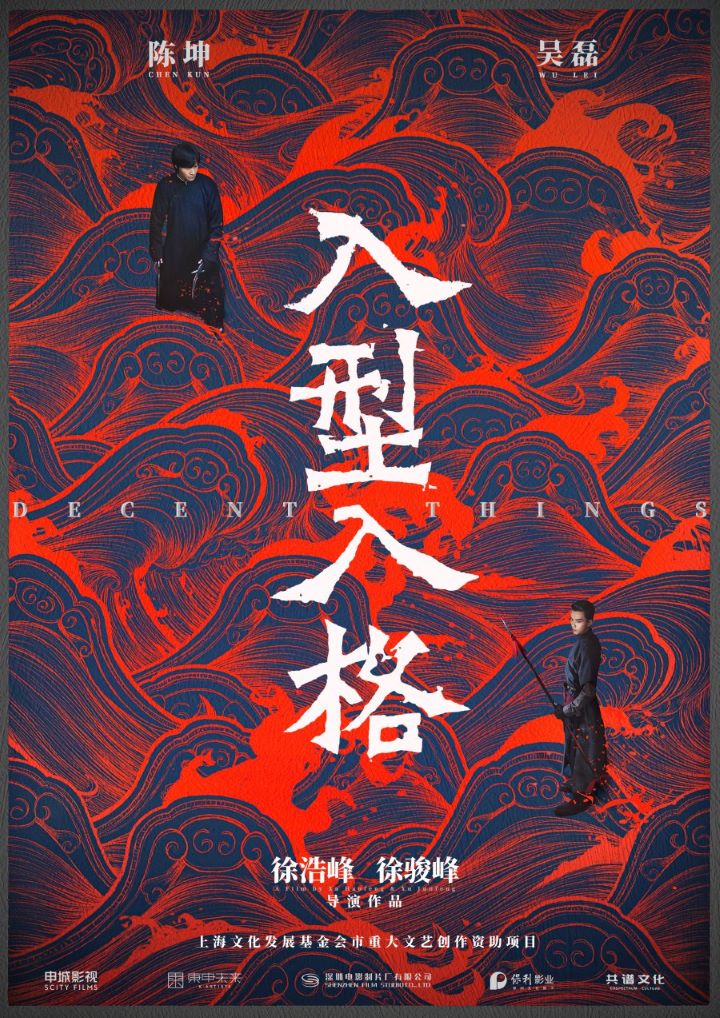
Since Ru Xing Ru Ge is martial arts and male-driven, which makes us think that it would potentially break director Haofeng Xu’s previous record because, in terms of cast, resources and budget, we are well-prepared. He is the biggest martial arts director in China. So, this one has the best potential in terms of everything.
Haofeng Xu feels like he has a mission as a director, to give martial arts movies in China a push, by bringing them into the market. He aims to bring new actors and new action directors into this industry so that it doesn’t die.
[Author’s note: Thank you to Mr. Hu Lizhou and the brilliant team at Scity Films for bringing ‘Escape from the 21st Century’ to Toronto. Also, thanks to the incredible cast and crew of this manga-like sci-fi movie. This interview was originally conducted in Chinese Mandarin. Special thanks to Clément for helping with the translation.]

